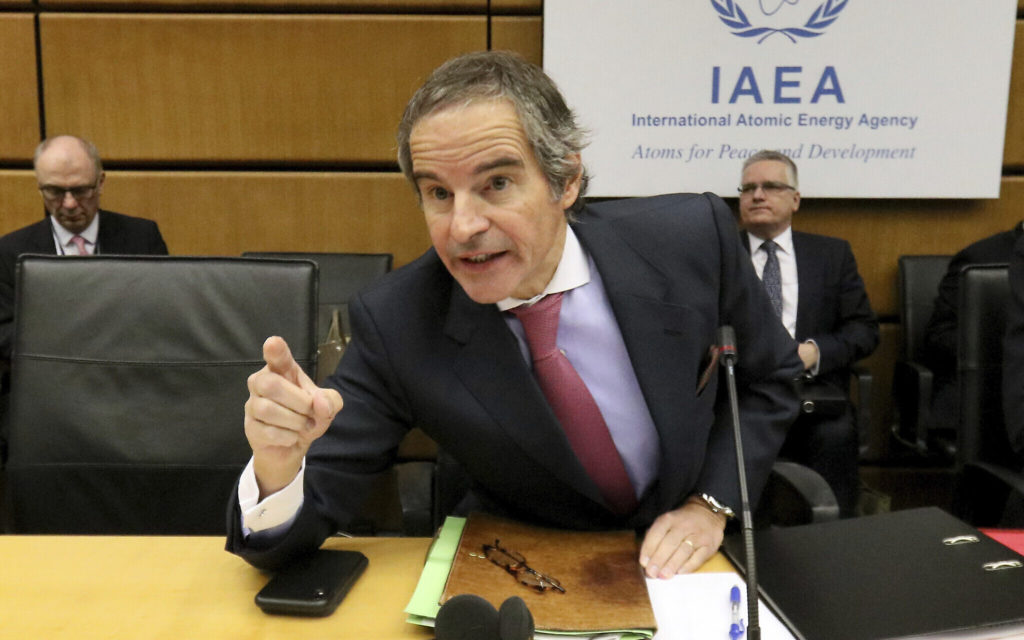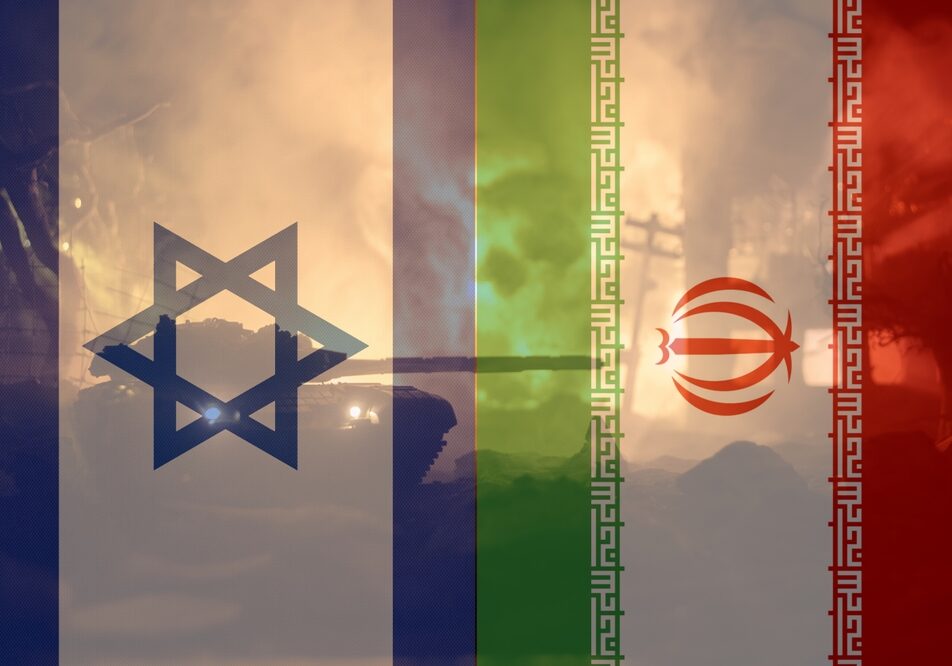Australia/Israel Review
Editorial: An IAEA wake-up call
Jun 30, 2020 | Colin Rubenstein

Reports about the ongoing Iranian violations of the 2015 Joint Comprehensive Plan of Action (JCPOA) nuclear deal surface so often they have become almost routine. Each of these violations reduces the time it would take for Iran to produce a nuclear weapon and increases the urgency to pressure Teheran back to the table to renegotiate a better nuclear deal. Yet other important global issues, such as the coronavirus pandemic and the international Black Lives Matter protests, have pushed the Iranian nuclear issue to the backburner.
However, the latest International Atomic Energy Agency (IAEA) expert reports (June 5 and 6) and the June 19 Board of Governors’ resolution on Iran are in a whole different category. They ought to break through the current international complacency on Iran’s nuclear program.
This is because this IAEA resolution, tabled by the European powers and passed by a landslide of 25-2 (with Russia and China the sole opponents) criticises Iran for violating the Additional Protocol of the Nuclear Non-Proliferation Treaty (NPT), not the JCPOA, by refusing to allow the agency’s inspectors access to two suspected former nuclear research and development sites.
The resolution marks the first time that Teheran has been accused of obstructing inspections since February 2012.
As US Assistant Secretary of State for International Security and Nonproliferation Christopher Ford told reporters in a briefing, “It is the first time ever, by any country, anywhere, that a government has rejected and refused to comply with its obligations under the IAEA’s Additional Protocol.”
The vote may also be seen as a minor diplomatic watershed event for the US, as it marks the first time the UK, France and Germany have fully backed Washington on a major policy regarding Iran’s nuclear program since May 2018. That’s when the US withdrew from the JCPOA, which it saw as “defective at its core”, and reimposed sanctions in order to pressure Iran to renegotiate a better, enforceable deal that would permanently block it from building nuclear weapons.
Some have, wrongly and dangerously, been willing to excuse Iran’s open violation of the JCPOA as a response to the US withdrawal. These excuses should now be abandoned in the face of Iran’s violations of the NPT – obviously illegal regardless of how one feels about the JCPOA.
In any case, five years on, the dangerous vulnerabilities in the JCPOA should be evident to all: the sunset provisions mean that Iran is only five years from having all restrictions on its uranium enrichment lifted; apropos of the latest IAEA finding – the deal’s inspection regime is inadequate and slow in dealing with Iranian stonewalling; the deal allowed Iran to continue to develop much faster centrifuges – designed, perfected and currently under testing with the JCPOA’s blessing; and it simply ignored Iran’s ongoing development of long-range ballistic missiles tailor-made for nuclear warheads. It also ensured that Iran could receive maximum economic benefit without sacrificing either its nuclear weapons ambitions or moderating its behaviour as a regional destabiliser through its proxies and clients such as Hezbollah, Palestinian Islamic Jihad and Hamas.
Ironically, the ease with which Iran has unravelled its commitments and resumed nuclear activity proscribed by the JCPOA has only validated the Trump Administration’s criticisms of that deal.
In recent months, Iran has steadily stopped complying with a growing number of restrictions outlined in the agreement, including exceeding limits on both the level of uranium enrichment and the size of its stockpile, developing advanced centrifuges, and resuming enrichment at its fortified, underground bunker in Fordow.
There have, of course, been other violations of the deal that Iran has not owned up to, such as maintaining a secret archive of nuclear weapon development research that Israel’s Mossad exposed in 2018. Documents obtained from this archive reportedly revealed the nuclear sites the IAEA has been trying to inspect.
Yet for Teheran, the JCPOA has been the gift that keeps on giving. In a move that defies all logic, the nuclear deal bestowed upon Iran, unconditionally, an end to the long-standing conventional arms embargo on that country from October 18 of this year.
Whatever motivated this ill-conceived concession to the Iranians in 2015 – today, at a time when an Australian frigate has just returned from protecting commercial shipping vessels from Iranian attacks in the Strait of Hormuz, and Saudi Arabia is still feeling the effects of last year’s Iranian drone and missile attack on its largest oil field – lifting the embargo under current circumstances would be an own-goal of epic proportions.
This is true whether looking at it from the perspective of Iranian imports that would allow it to modernise its military, involved in considerable regional aggression, or exports that would empower its terrorist proxies and clients.
Unfortunately, US efforts to extend the embargo through the UN Security Council appear unlikely to succeed due to resistance from Russia and China, both of whom are potential arms suppliers for Iran. This is itself a cause for worry, as an open arms trade with either of these patrons has the dangerous potential of leading to alliances that could upset the delicate geopolitical balance between the global superpowers.
Yet should the bid to stop the lifting of the embargo fail in the Security Council, the US is threatening to unilaterally activate “snapback” sanctions on Iran as permitted under the provisions of the JCPOA and UNSC Resolution 2231.
There are genuine risks in such a course, but to allow the lifting of the arms embargo to proceed would be riskier still.
In a year of unprecedented challenges for governments around the world, the Iranian threat, both nuclear and conventional, must remain a priority. Australia, together with its Western partners, should lend all diplomatic support to US efforts to extend the arms embargo on Iran. The latest IAEA decision should serve as a wake-up call as to how important the Iranian nuclear file remains to international peace and security.
Tags: IAEA, International Security, Iran, JCPOA






